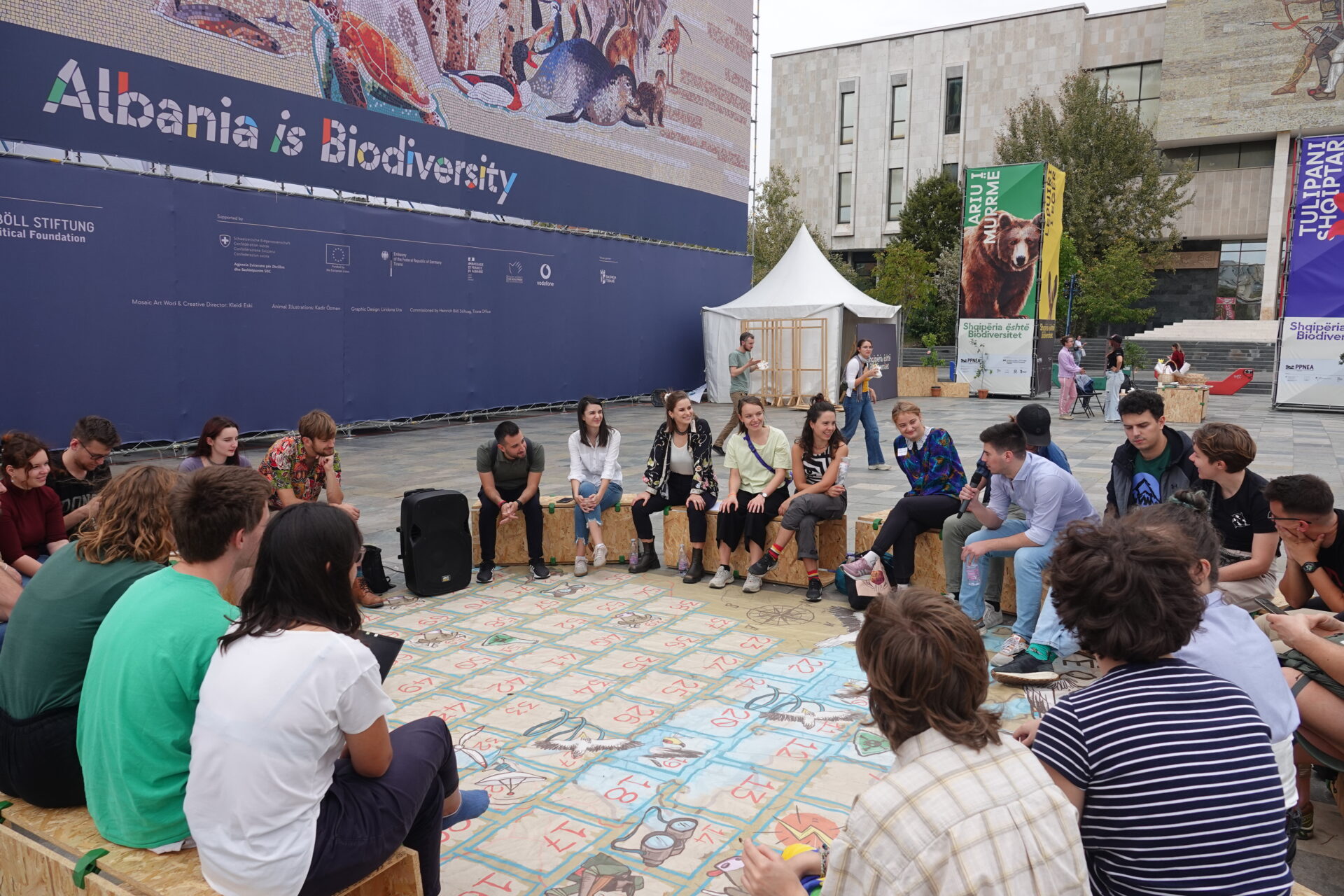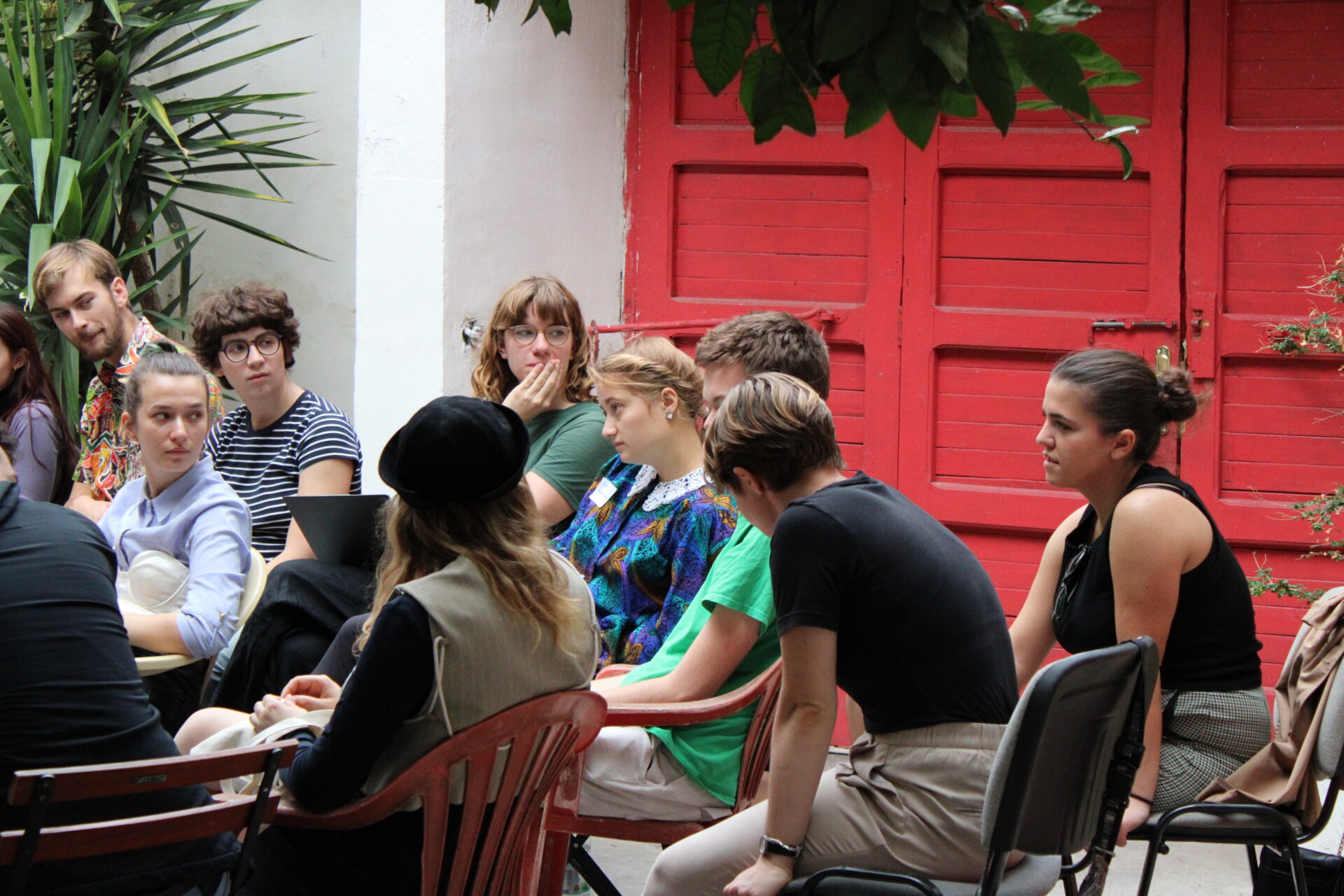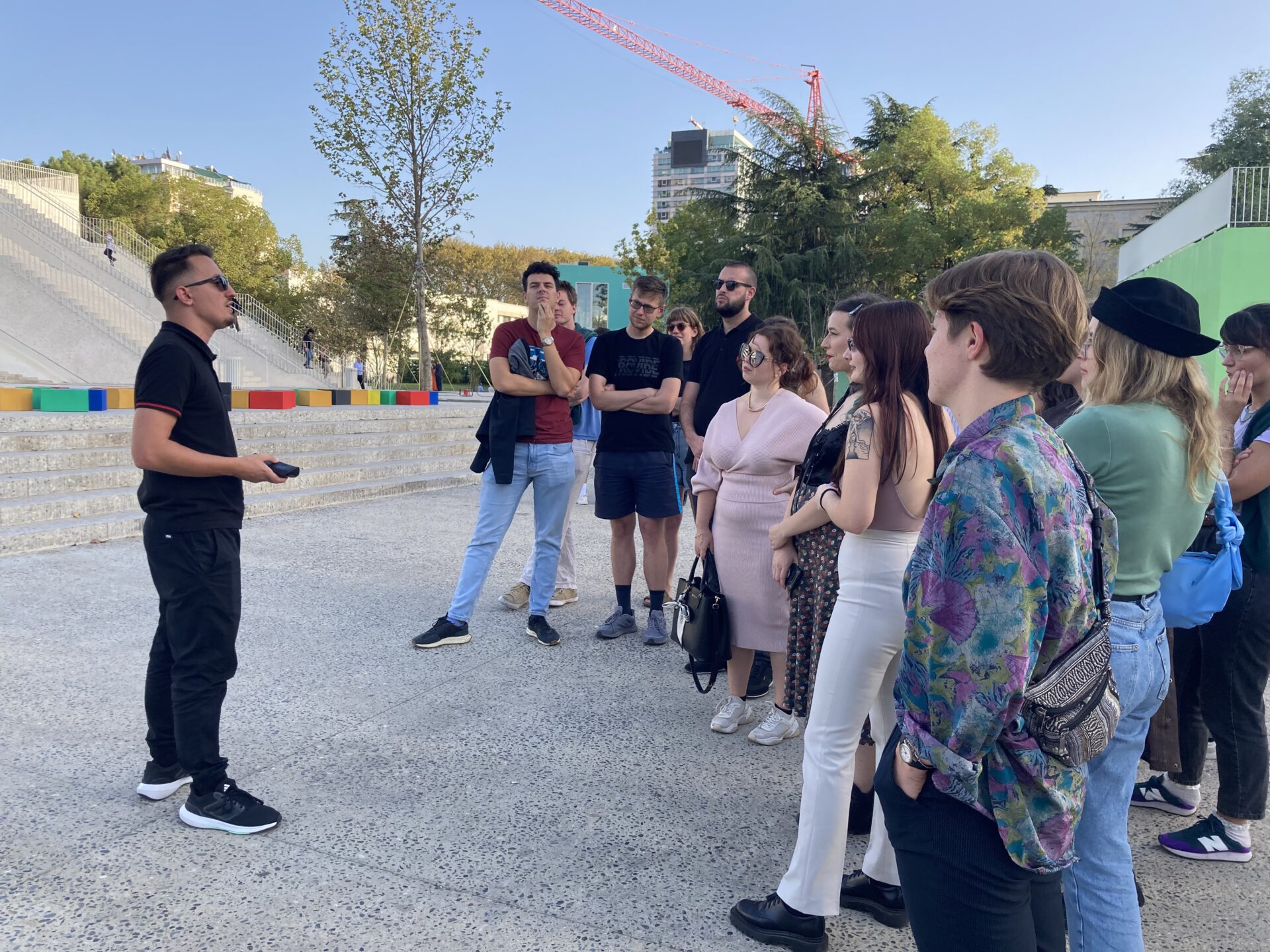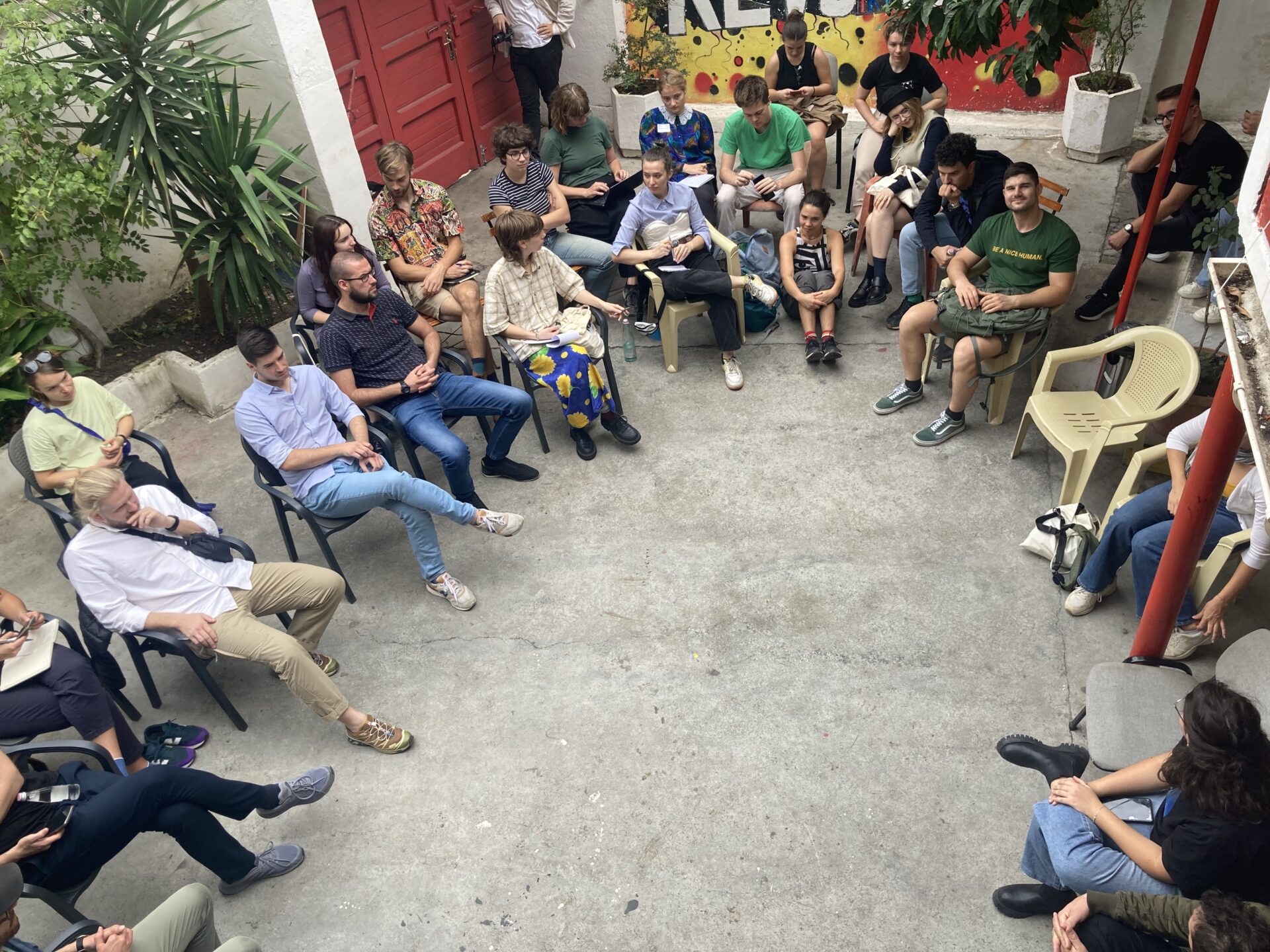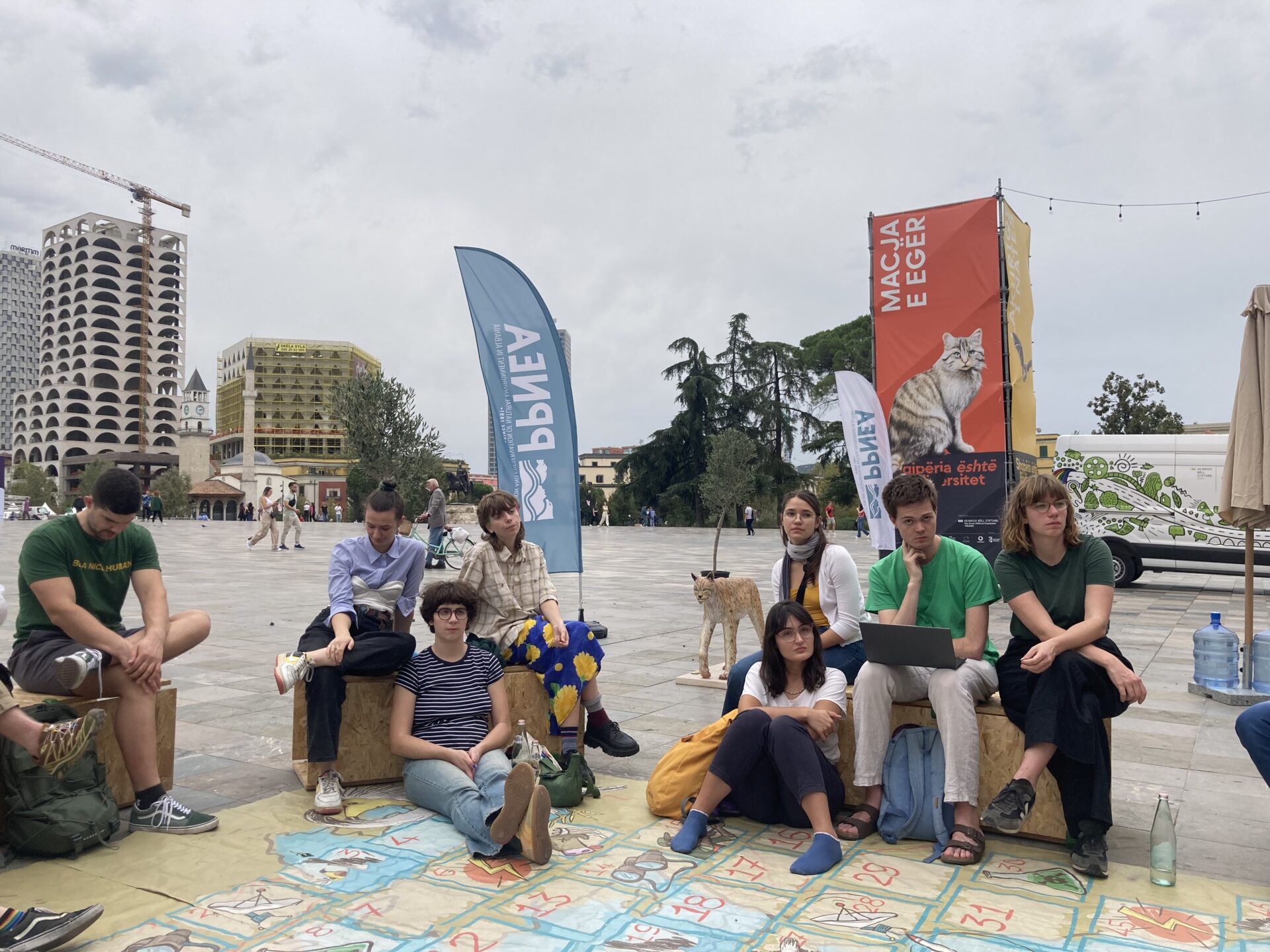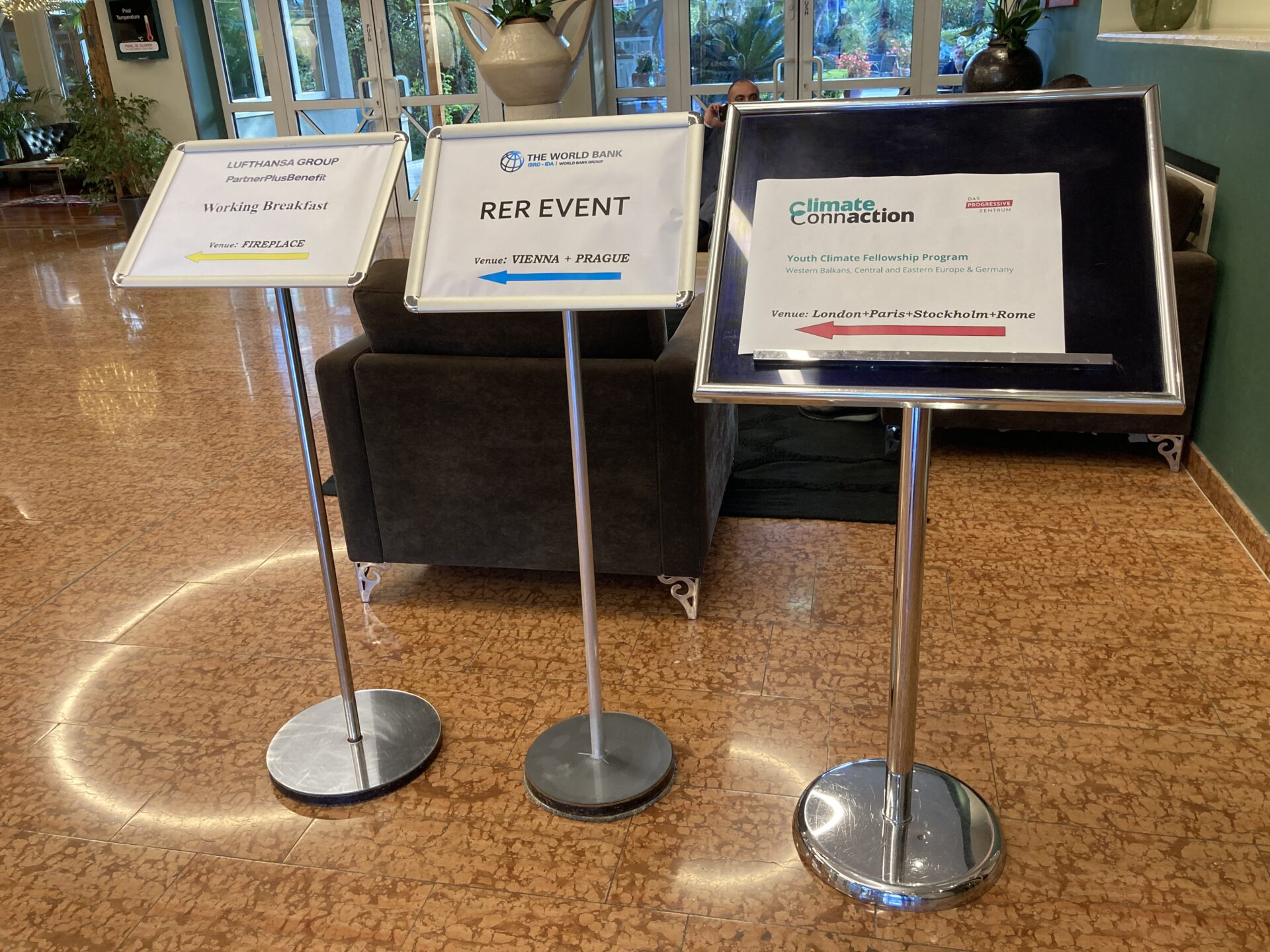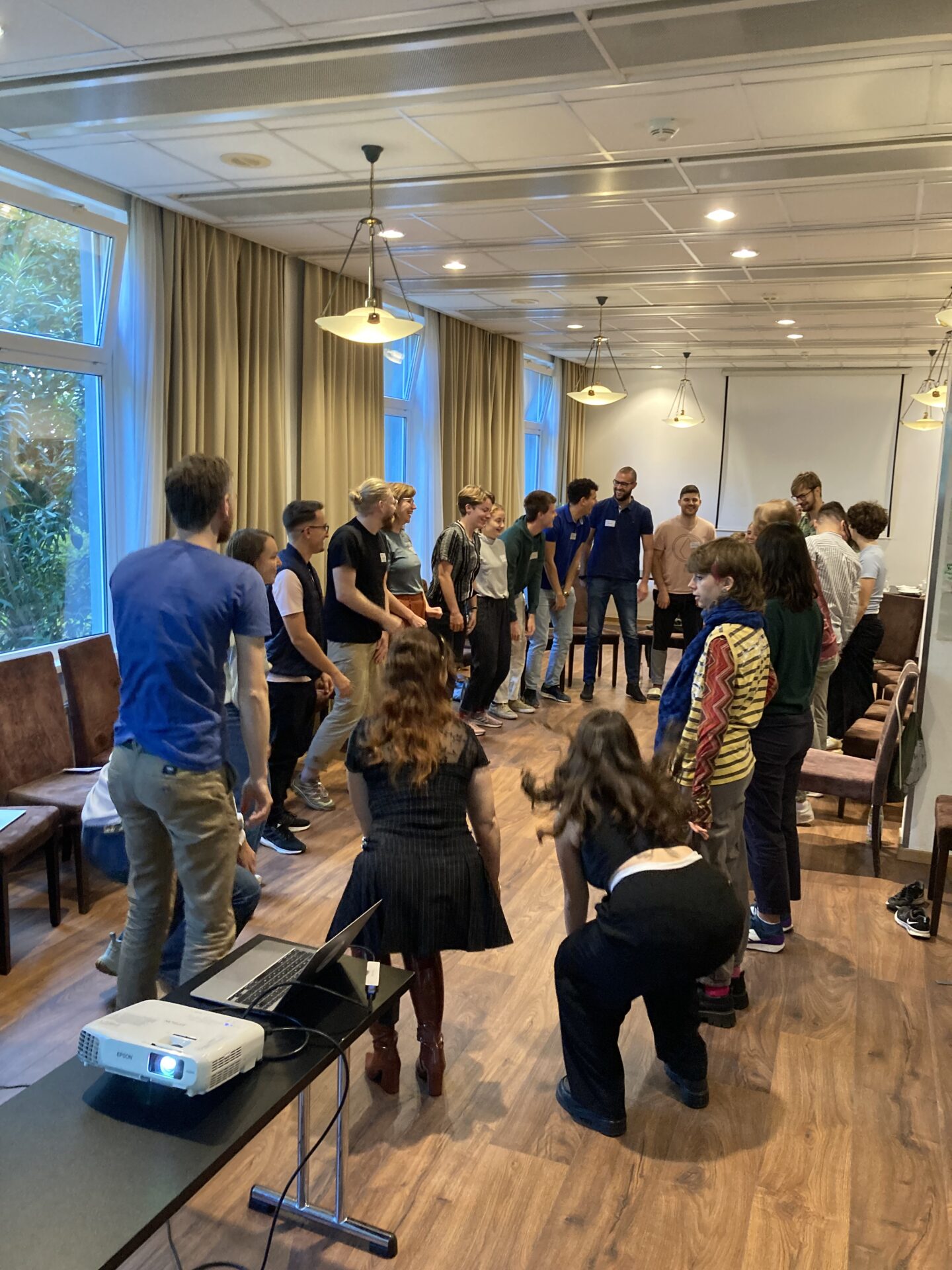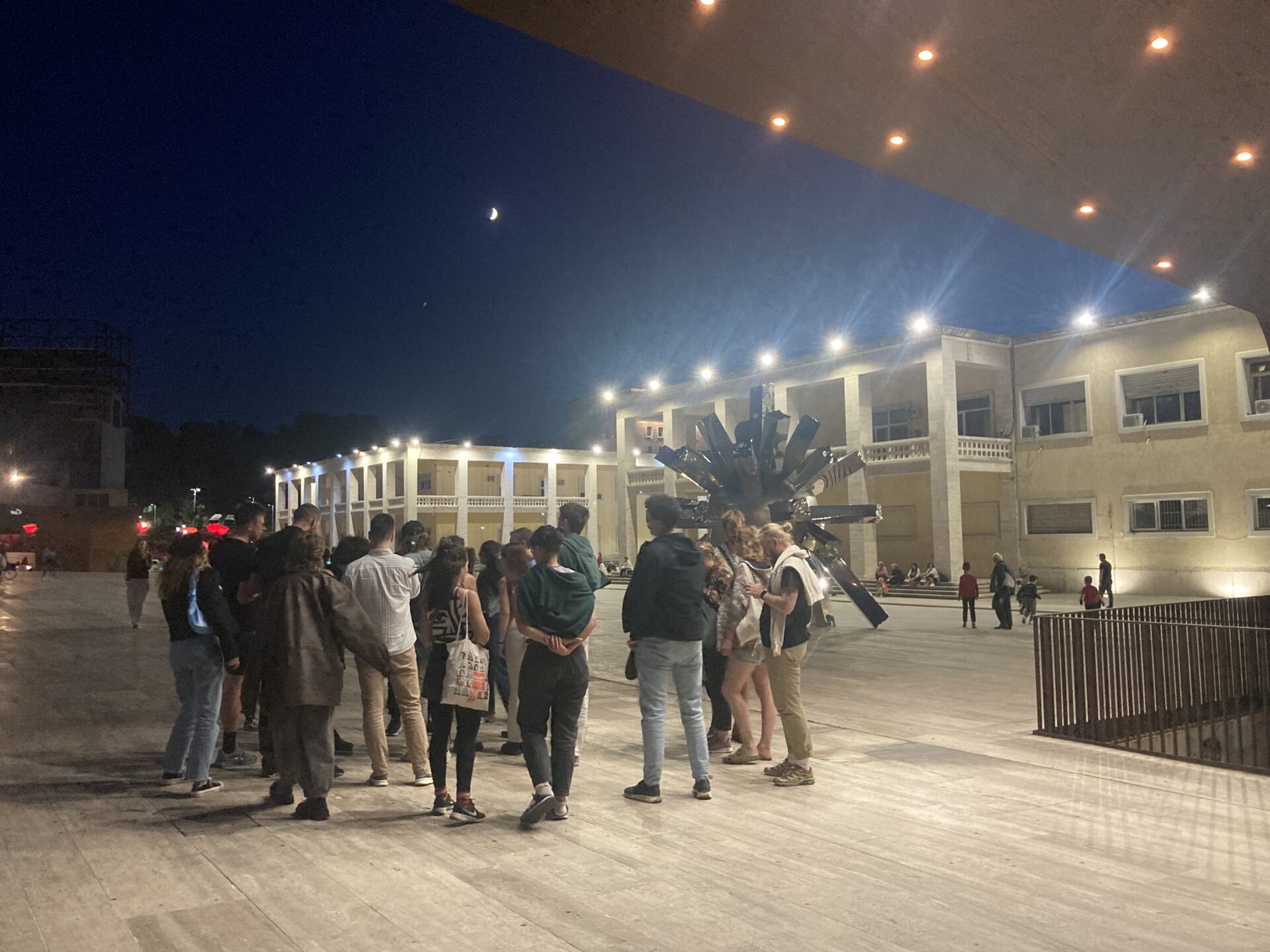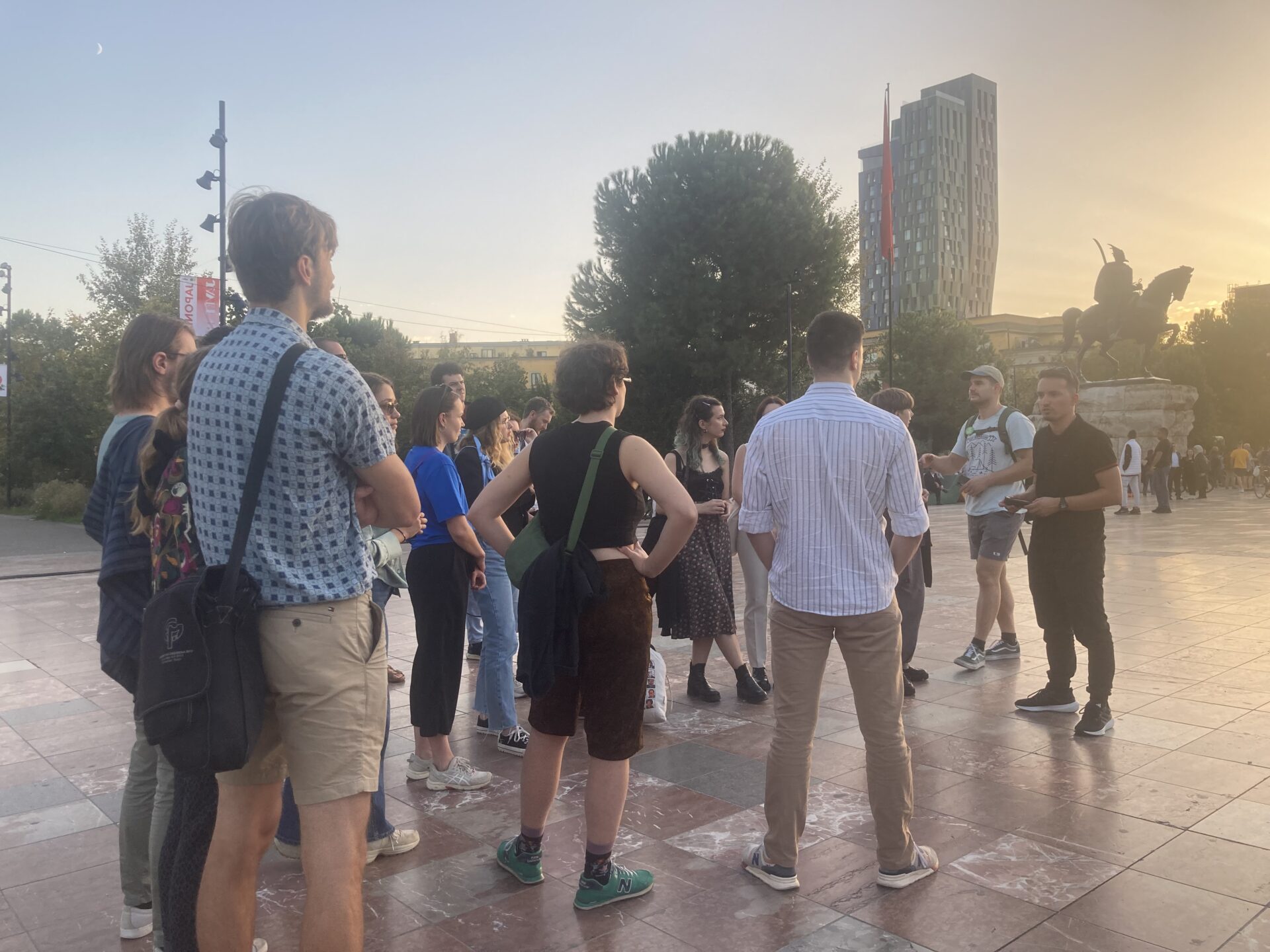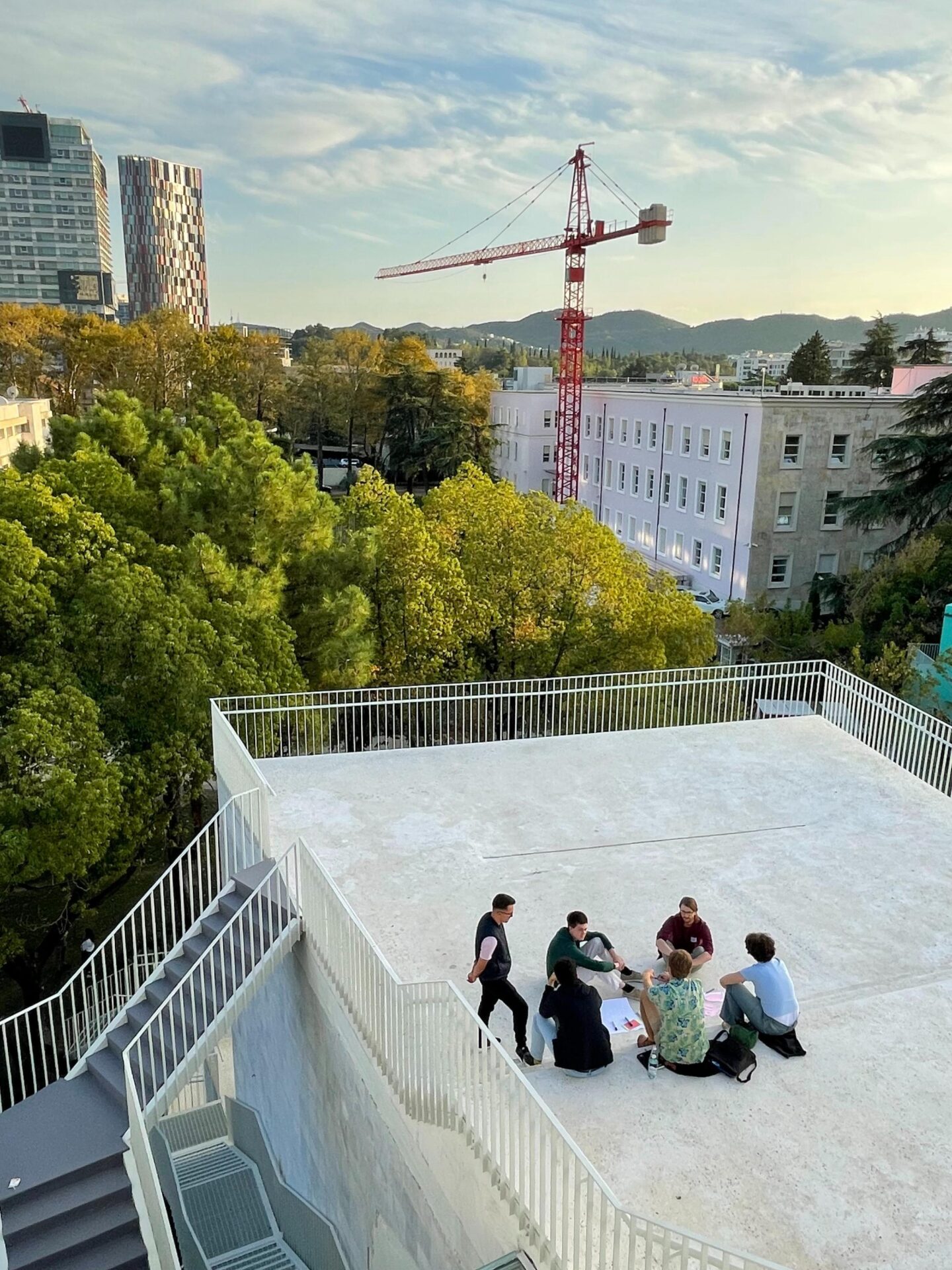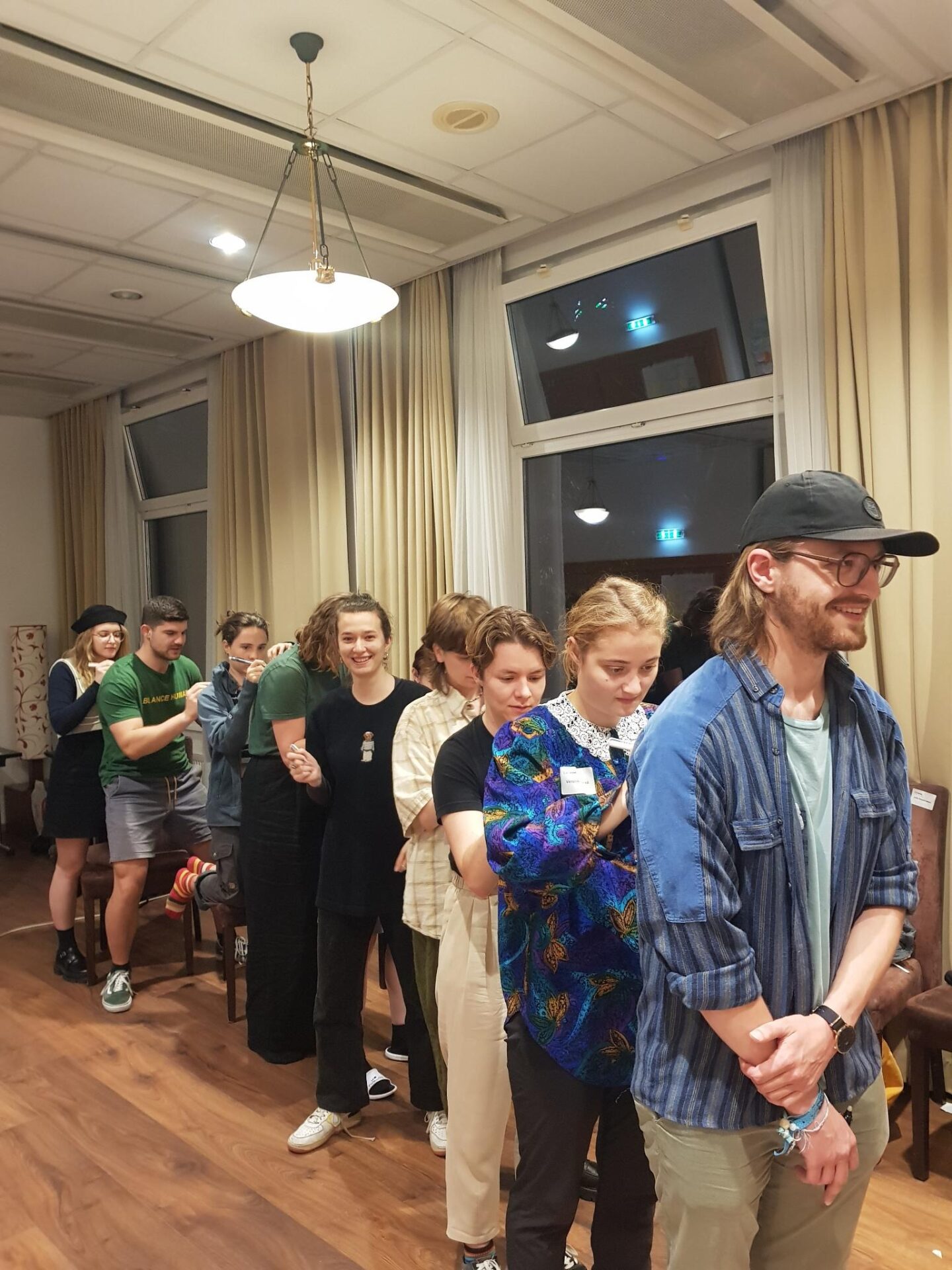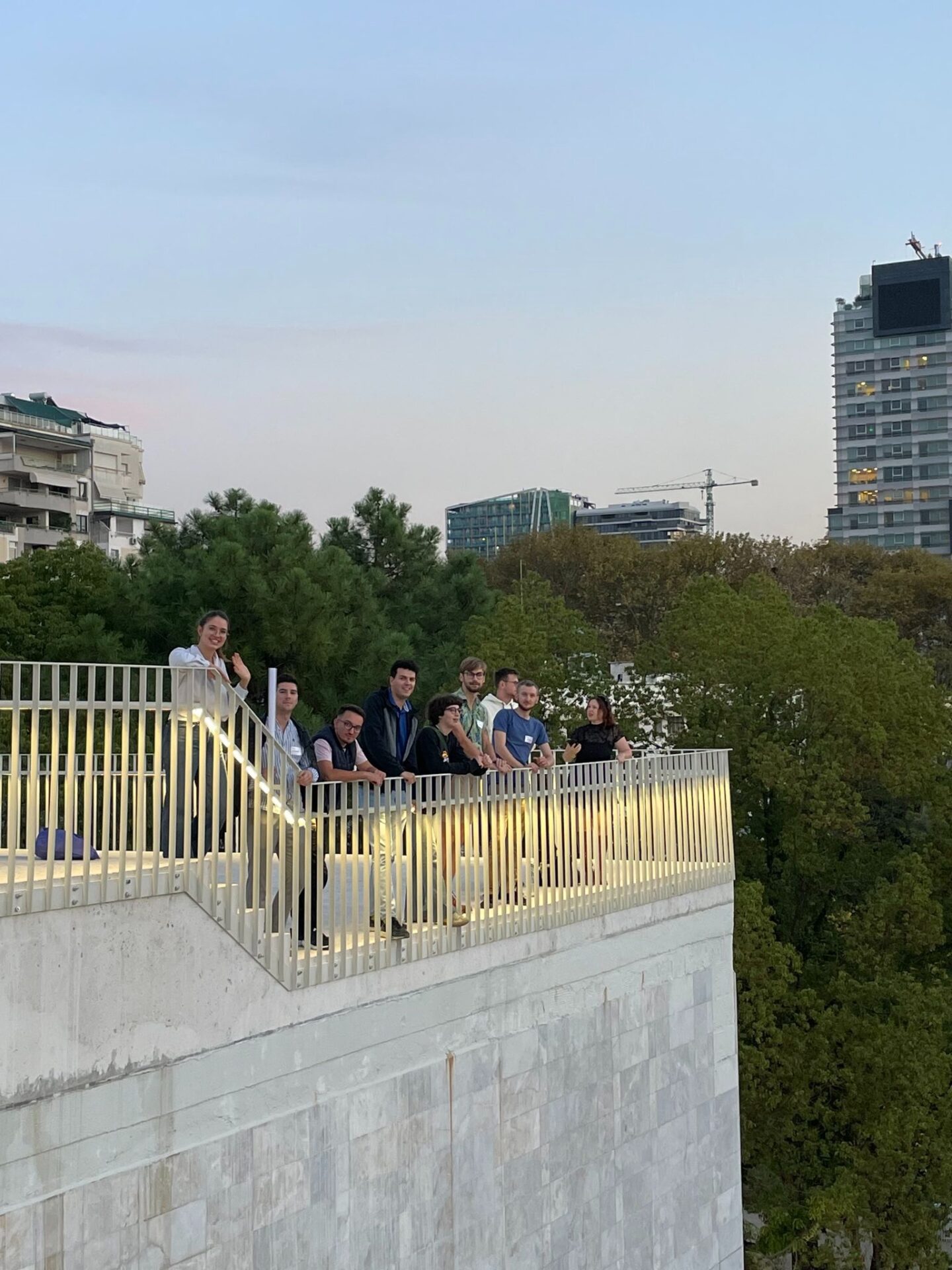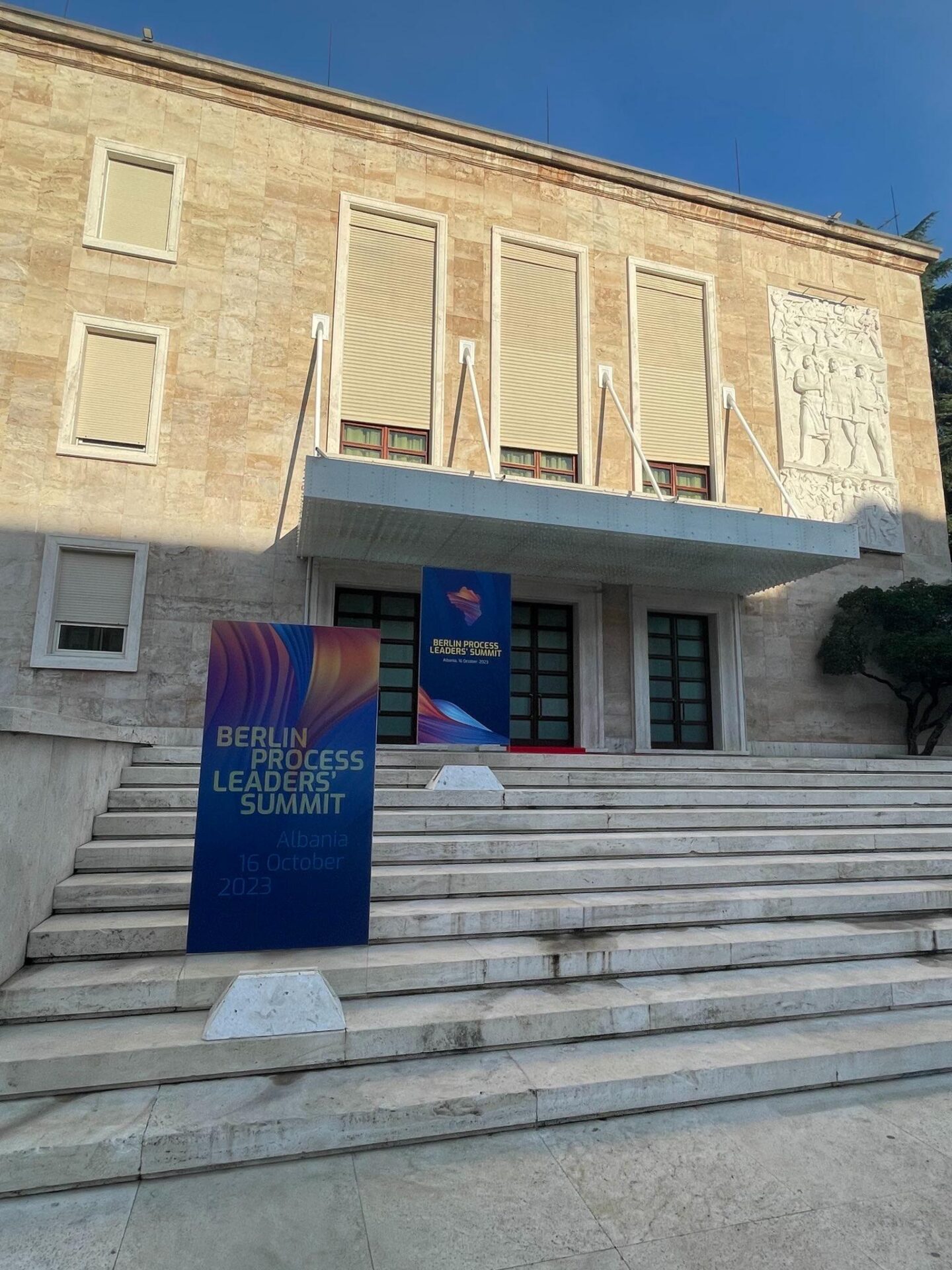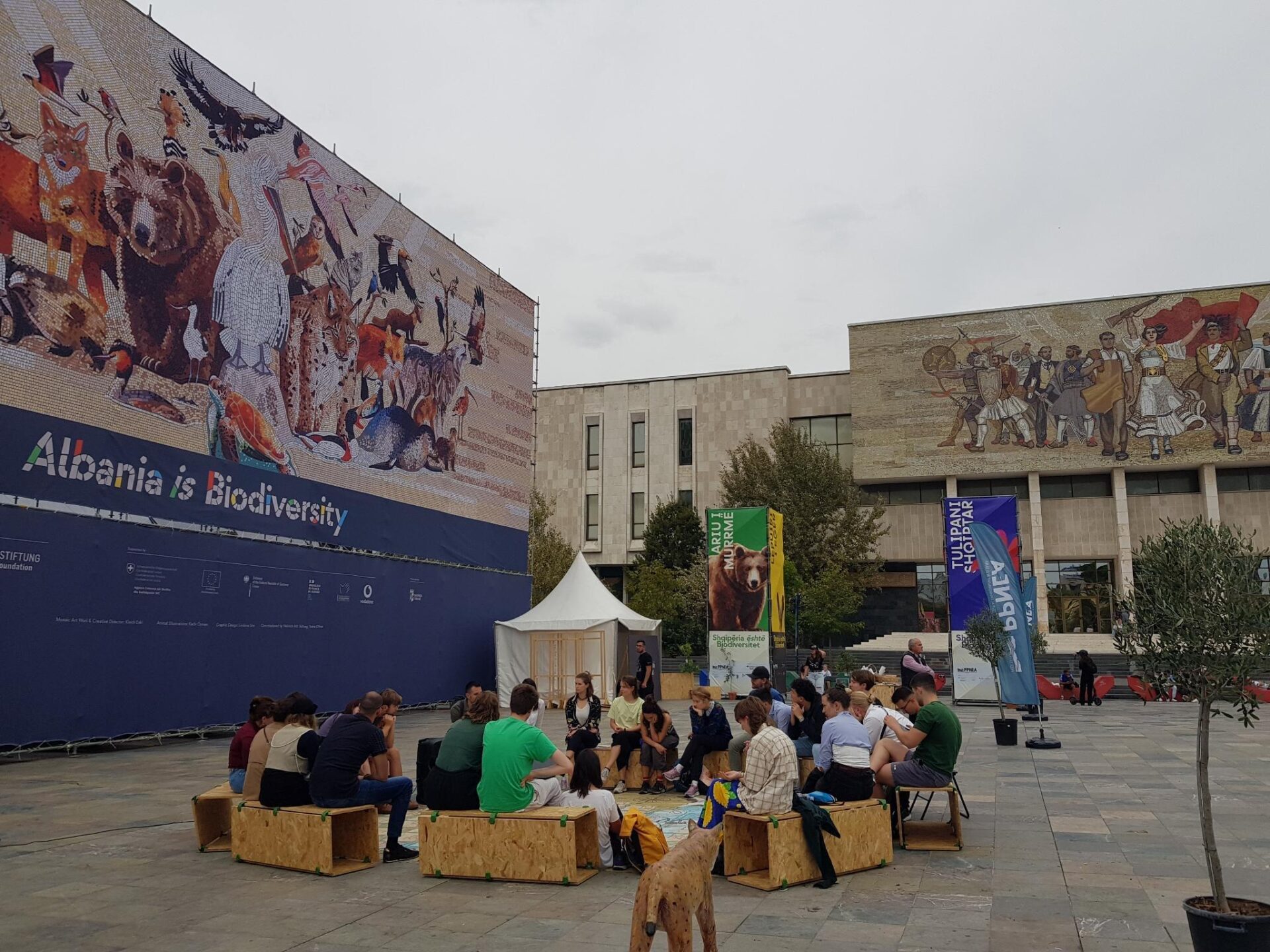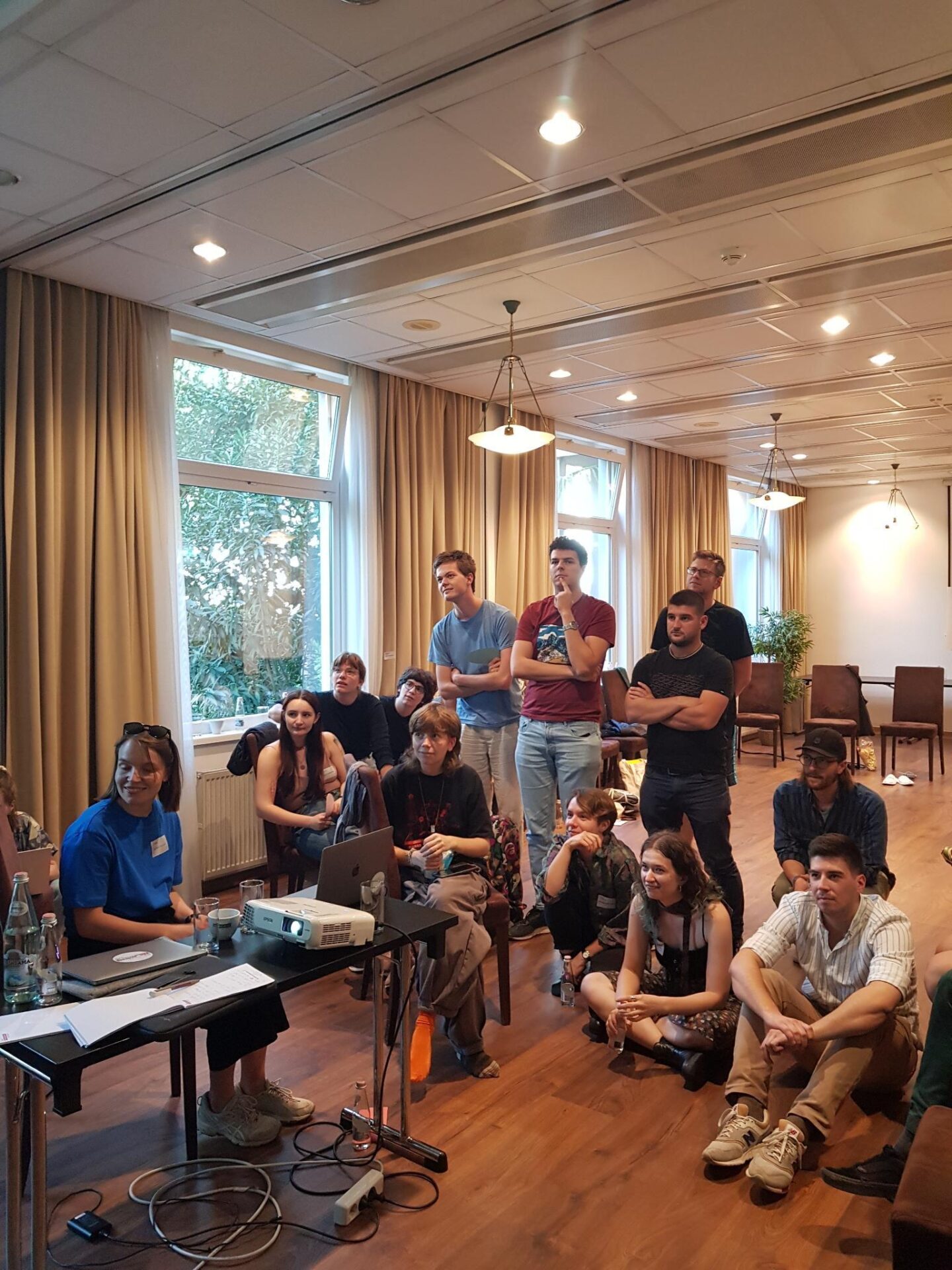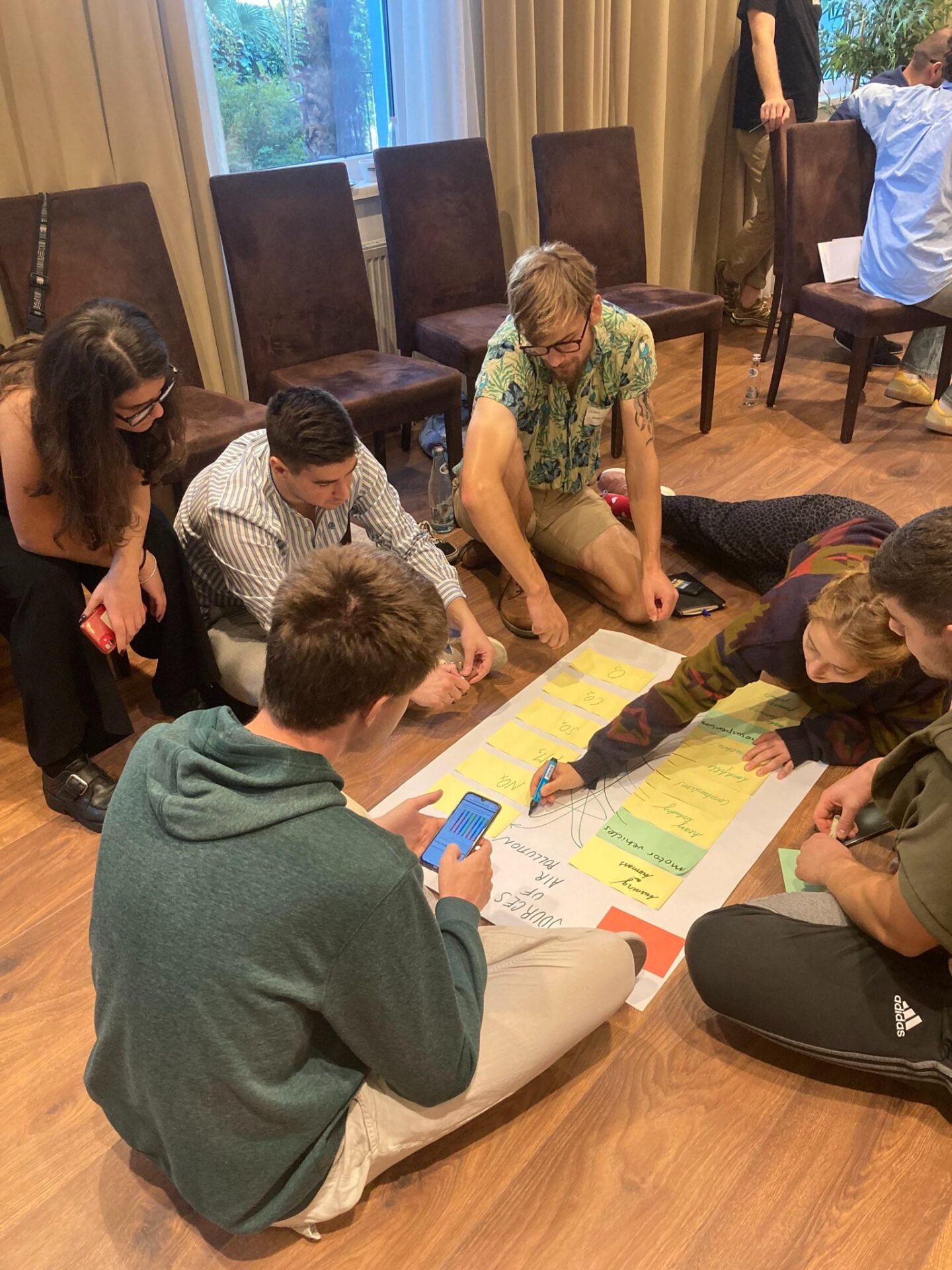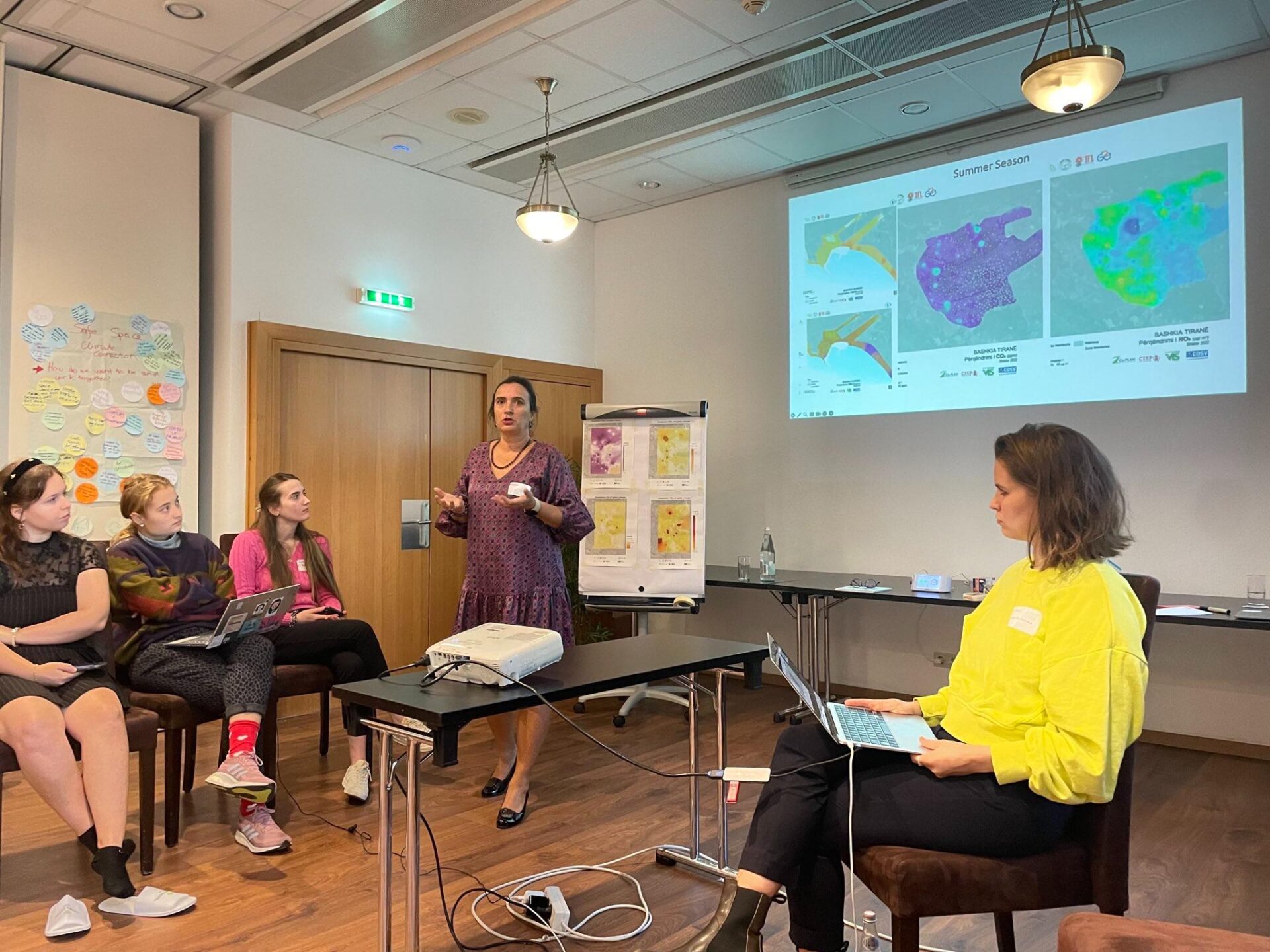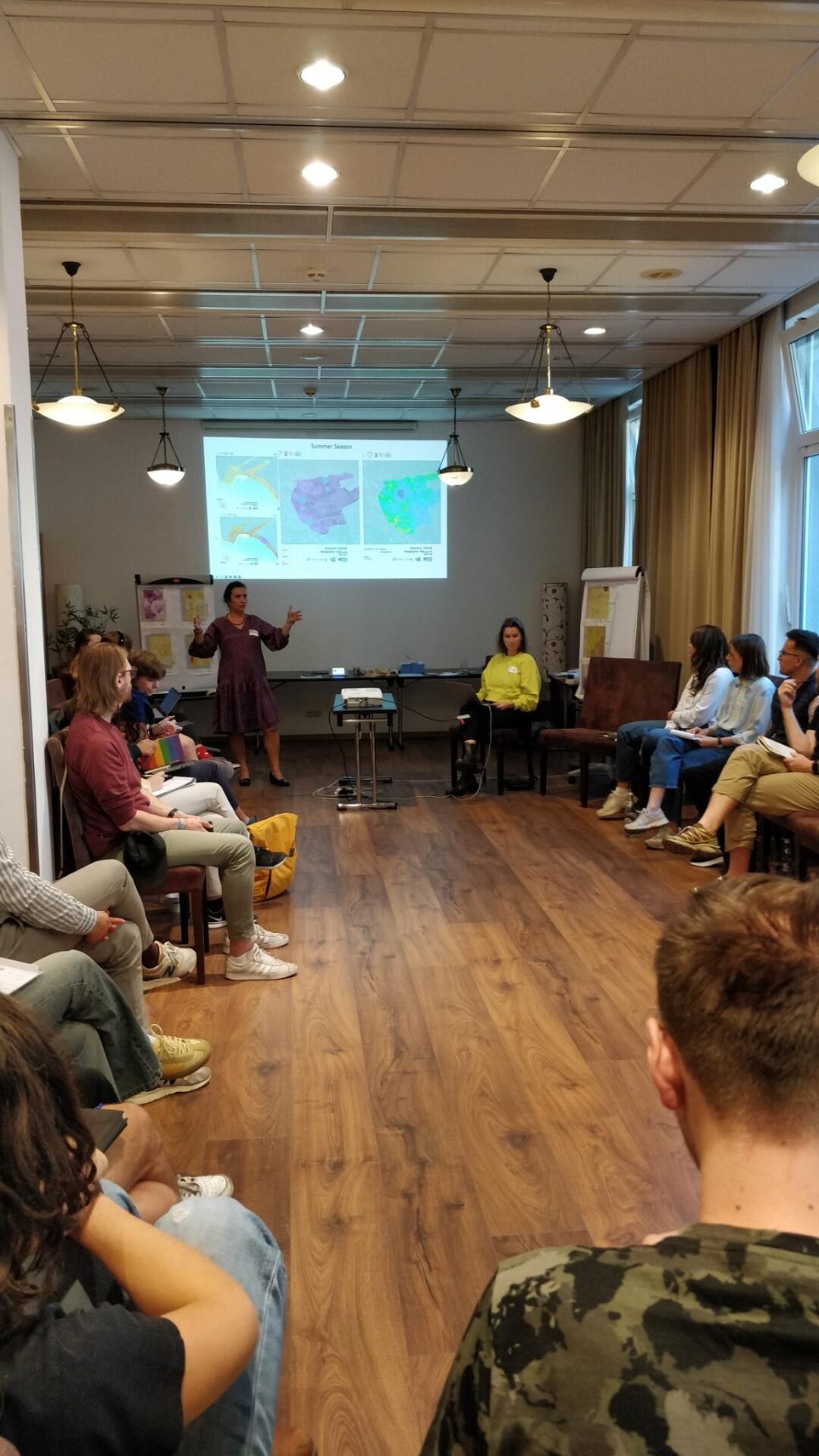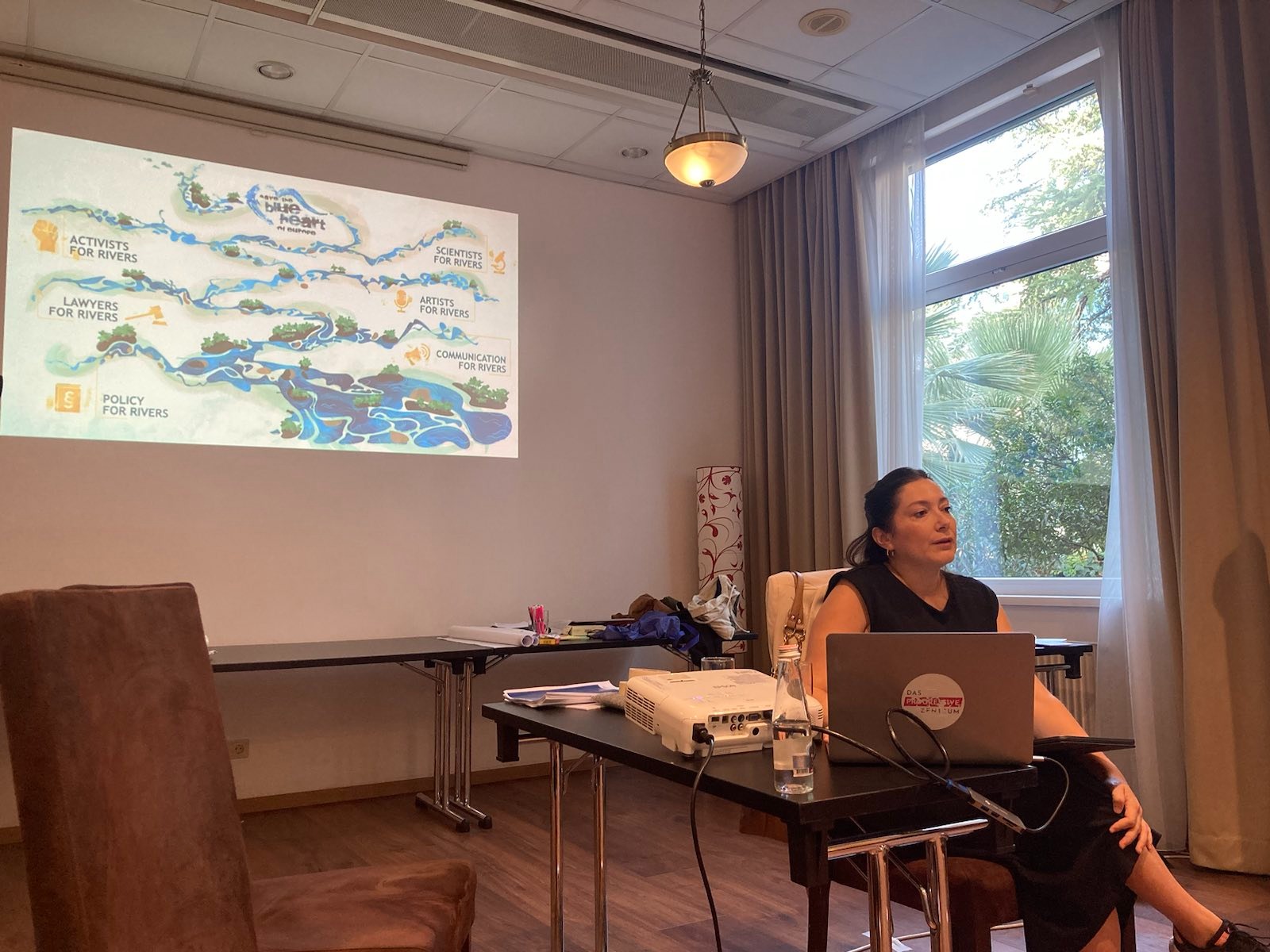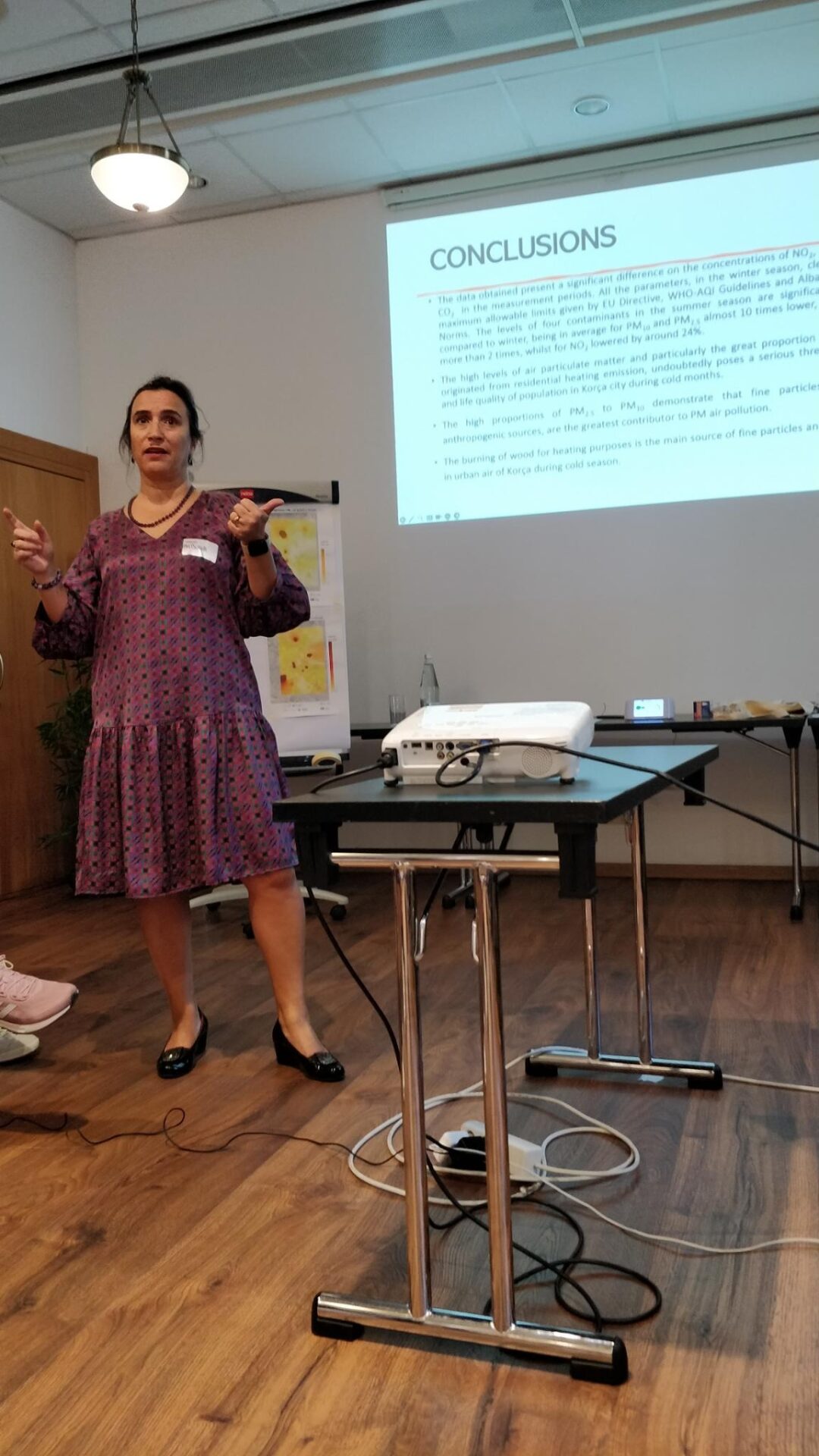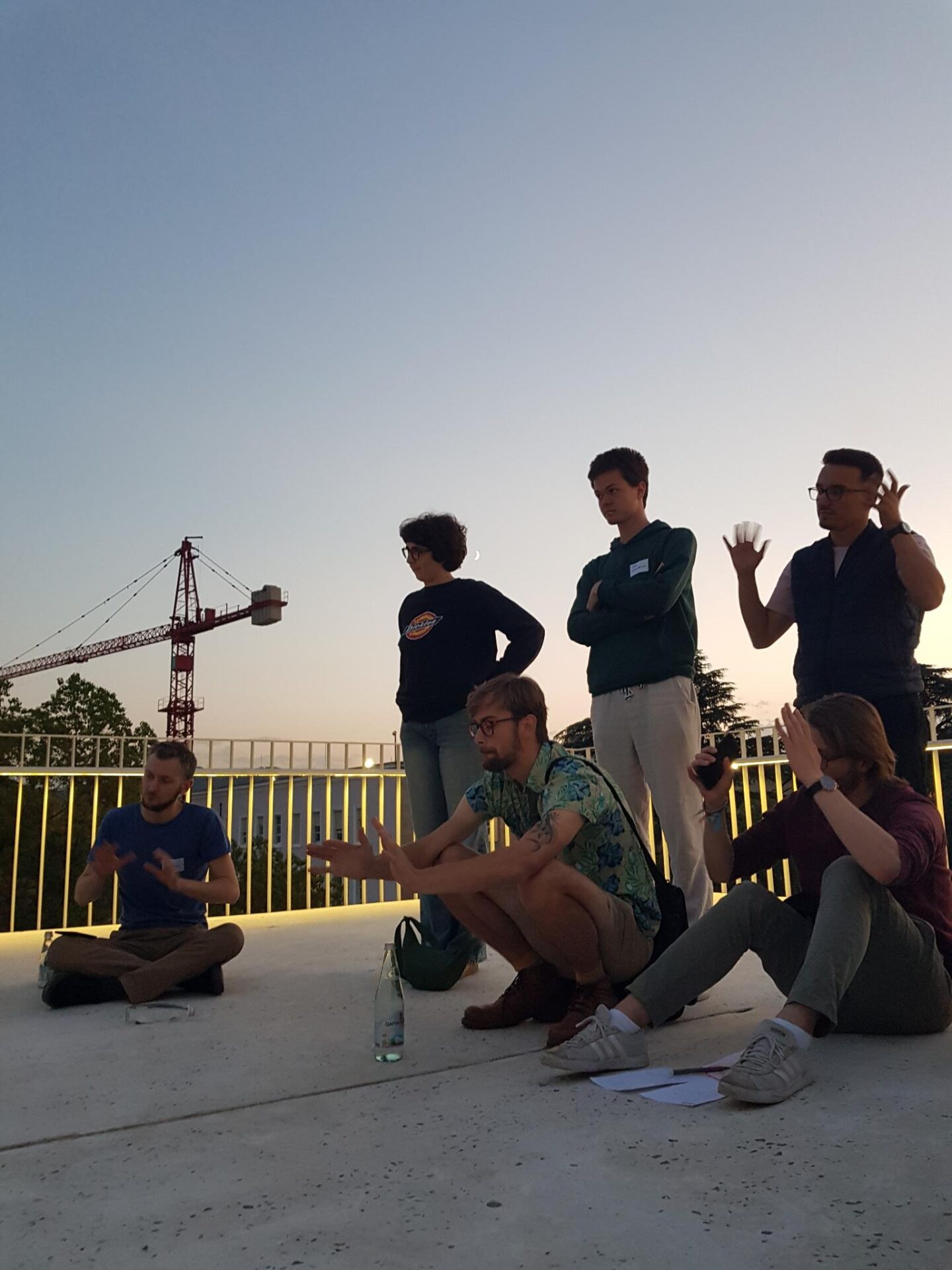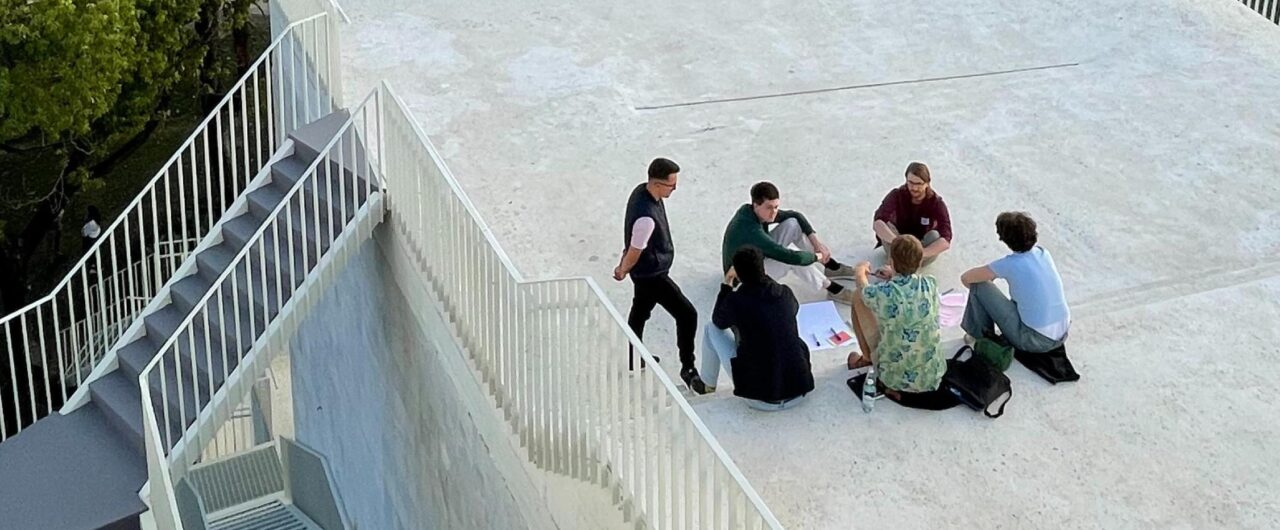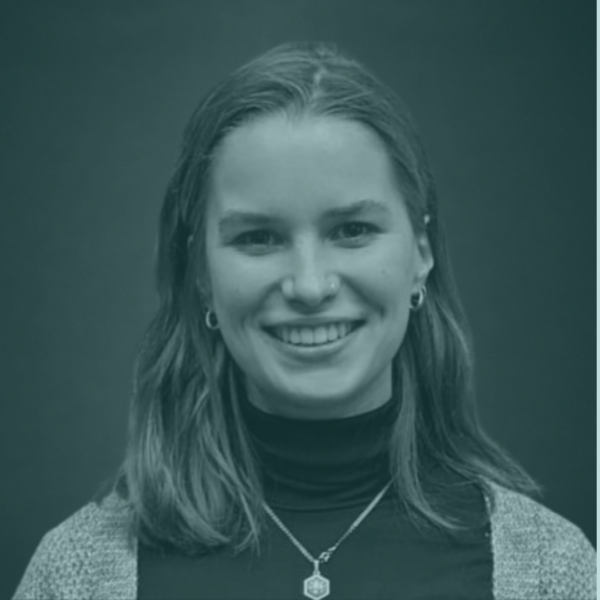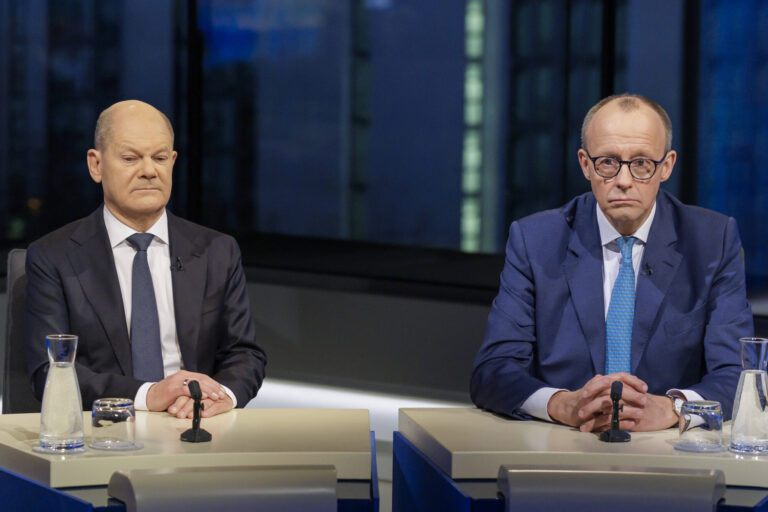Only a few days after the Western Balkans summit of the Berlin Process on EU enlargement (October 16), our last study trip with the Fellows took us to the capital of Albania: Tirana. After our exchange with Minister of State Anna Lührmann at the Federal Foreign Office in Berlin in September and hearing reports from the Berlin Process, we took time to discuss the EU’s relation with the states of the Western Balkans, their prospects for accessing the EU as well as how EU enlargement policy and climate policy interlink. The aim of the trip was to network with local climate and environmental movements and other relevant civil society actors in order to understand Albanian climate and environmental policy in the context of the current political situation. Furthermore, we continued and deepend our discussions from the educational trips to Bonn (June 7 – 10) in the context of the UNFCCC and Berlin (September 16 – 23) among the Fellows and with distinguished dialogue partners in Albania.
We met with various NGOs such as Millieukontakt Albania, who shared valuable insights into their work on monitoring air pollution (Green Lungs Albania project) and energy poverty in the region. In large cities, people are suffering from the effects of increasing air pollution, which is a major contributor to climate change. Valbona Mazreku, Executive Director from Milieukontakt Albania emphasised the immediate importance of measures to improve air quality, such as reducing traffic flows and investing in modern heating systems. The discussion on energy poverty and its gender-specific effects showed once again how social and climate justice issues are interlinked and can only be successfully tackled together. How local movements address these issues at the local political level and in political parties was discussed with members of Lëvizja Bashkë (TOGETHER Movement).
Among the highlights of the trip was joining PPNEA and the Heinrich Böll Foundation Tirana, in a temporary education centre on the city square and their campaign „Albania is Biodiversity“ to raise awareness for the protection of endangered species. To find out more about one of the great success stories of nature conservation in Albania and the Western Balkans and to gain an in-depth insight into the current Albanian climate debate, we met with EcoAlbania and the Westminster Foundation for Democracy (WFD) in Albania: The best practice case of the „Save the Blue Heart of Europe“ campaign, which aims to stop dam projects along the Vjosa River and make it the first wild river national park in Europe. This example shows how cooperation with different local actors and across borders, and sometimes also with companies and other international actors, can be made to work in practice and that such processes require a lot of perseverance over years and good organization. But also that even after winning the court case, the work continues to ensure that the practical implementation, in this case the establishment and protection of a national park is a long-term endeavour – which, is being called into question in view of the construction of Vlora International Airport within the protected area in the river delta.
Finally, we did a city tour of Tirana and learnt about urban structures and developments and their impact on environmental issues and visited a historical museum. Even though we had to say goodbye to the Fellows in Tirana for the time being, we will continue to network digitally at future meetings (e.g. on the connection between corruption and climate policy or at meetings relating to COP 28 in Dubai).
But what is already becoming clear is that the shared learning experience in Albania, Germany and in Digital Meetings has created a great and valuable network of people who are connected in their commitment to action against climate change and cross-border collaboration, even beyond this programme.
→ Would you like to discover more highlights of the trip from the Fellows‘ perspective? Then read the Fellows´ travel reports by Donika Ahmetaj, Luka Milovanović and Veronika Králová.
→ Our Climate Action Fellow Frenkli Prengaj, a young climate activist from Albania, tells treffpunkteuropa.de what opportunities EU accession holds for climate policy in the Balkans. Click here to read this article .
Pictures
